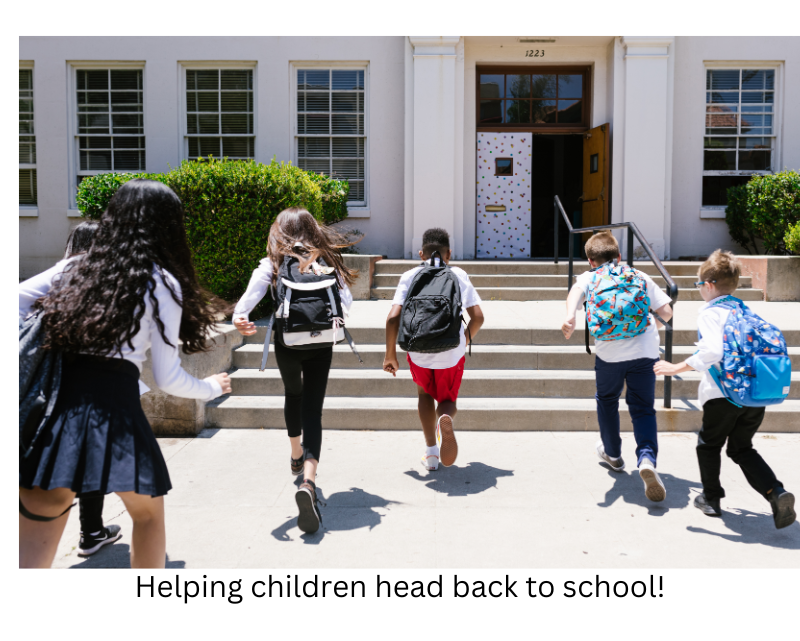Shopping for school supplies, meeting teachers, and touring new classrooms—families everywhere experience the “back-to-school” routine. Amidst the excitement, most parents also experience some stress. Parents living in two houses face far more. Take heart. Parents can set children up for success in school—even from two homes!
Keep the focus on the children
While research reveals the devastating effect of divorce on children, research also details the number one factor for countering these negative impacts—parents working together for their children.
Nothing else comes close. Not counseling, not involvement with activities, not thousands of toys.
When parents work together, children thrive. So—as you consider how to support children in transitioning to a new school year—take some time to consider how you will work with their other parent.
Parents from amicable divorces find this easy. Parents deeply betrayed by a spouse or pitted in years of court battles carry deep wounds, making this much harder. The truth—wherever you fall, you can work together.
Take a lesson from the cast of the hit show “Castle.” It is said the leads couldn’t stand each other. Yet, in the show, they come off so connected! Their secret? They cared more about the show than their personal feelings. If they could successfully cooperate daily for a mere show, parents can do it for the long-term well-being of their children.
Ask the children
Before school starts—gather children, serve popcorn, and ask, “How can we make this year good for you?”
Children may need prompting, but even the youngest will have ideas. Write them down. These may include:
- attend my games,
- help me with homework,
- let me have friends over, or
- walk me to the bus.
In short, find out what children want—then work together to make that happen. Even solid families must adjust to the changing needs/desires of children. For struggling families, children’s input offers key insights for meeting needs and building relationships.
Meeting their needs may include adjusting schedules, shopping for special food, setting aside time to assist with difficult subjects, or simply more time talking.
Sometimes what they ask won’t work. Explore alternatives. If a child feels scared waiting for the bus, you could offer “I have to be at work before the bus comes, so I can’t walk with you. But I could drive you to school. Would that work?”
Children may also bring up how they want you to behave. For example, they may want you to sit together at activities. Or, they may want you both to be there but in different sections. This implied criticism can hurt.
Instead of defending yourself, remember—children easily embarrass. They often feel “weird” due to divorce. Parental sniping humiliates them. If focused on your own feelings, it’s easy to lose track of this and defend your actions. When children make hard-to-hear suggestions, focusing on their feelings will make those easier to receive.
Hard-to-hear input also creates prime opportunity for healing. If you acknowledge children’s concerns and work together to act differently, children’s security returns—bringing healing with it.
Use the new year as a reset
If things have been difficult, the start of a new school year offers the chance for a reset. By working together and seeking children’s input, you convey, “We want to be a family that works. We want to work together to take care of you.” As they see you follow through on working together, the reset happens.
Heading back to school brings new opportunity—for children and families. We hope you celebrate all the year will bring for both homes!
If you would like more information on navigating divorce with children, contact Resolution Mediation by clicking HERE or calling 317-793-0825. We look forward to serving you.
As always, the above is for information only. Seek a divorce professional for guidance in your personal situation.



